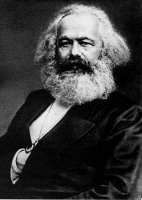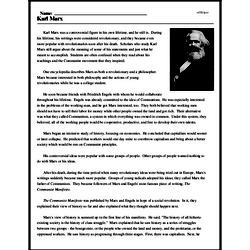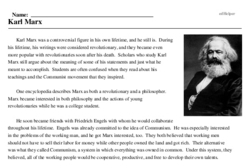Karl Marx
Karl Marx was a controversial figure in his own lifetime, and he still is. During his lifetime, his writings were considered revolutionary, and they became even more popular with revolutionaries soon after his death. Scholars who study Karl Marx still argue about the meaning of some of his statements and just what he meant to accomplish. Students are often confused when they read about his teachings and the Communist movement that they inspired.
One encyclopedia describes Marx as both a revolutionary and a philosopher. Marx became interested in both philosophy and the actions of young revolutionaries while he was a college student.
He soon became friends with Friedrich Engels with whom he would collaborate throughout his lifetime. Engels was already committed to the idea of Communism. He was especially interested in the problems of the working man, and he got Marx interested, too. They both believed that working men should not have to sell their labor for money while other people owned the land and got rich. Their alternative was what they called Communism, a system in which everything was owned in common. Under this system, they believed, all of the working people would be cooperative, productive, and free to develop their own talents.
Marx began an intensive study of history, focusing on economics. He concluded that capitalism would sooner or later collapse. He predicted that workers would one day unite to overthrow capitalism and bring about a better society which would be run on Communist principles.




